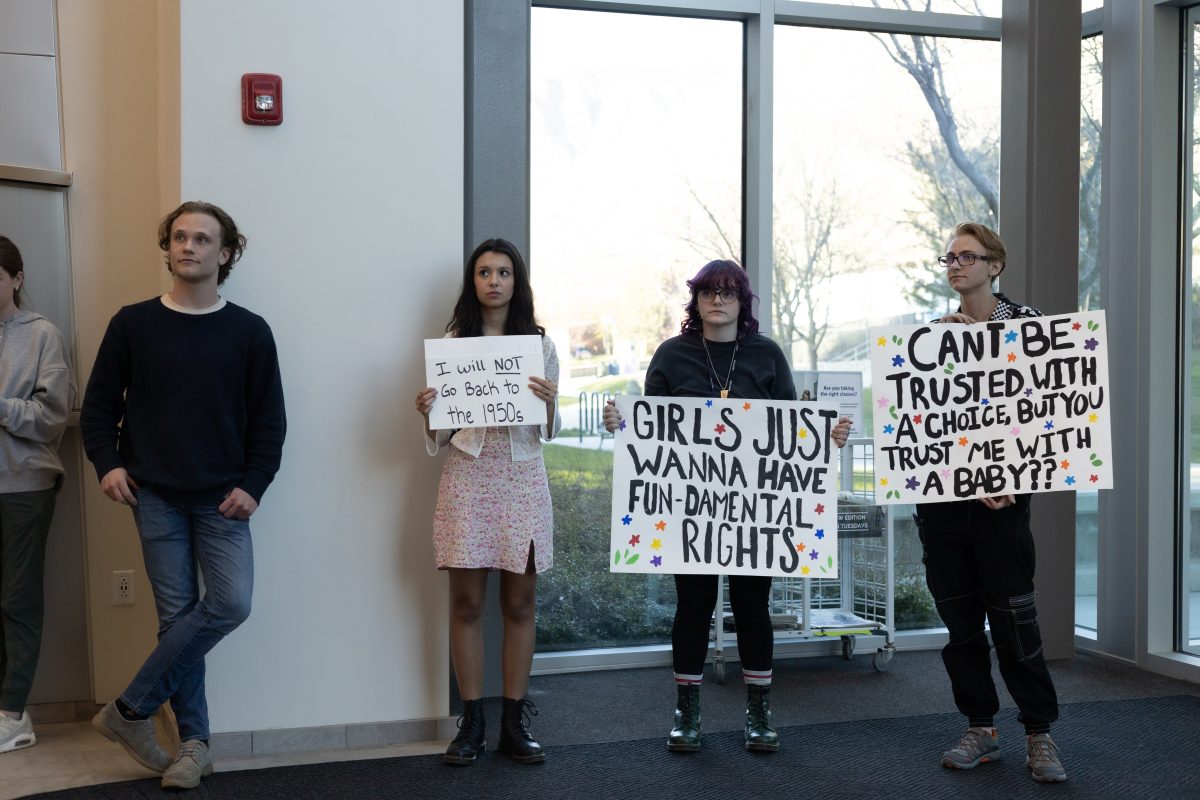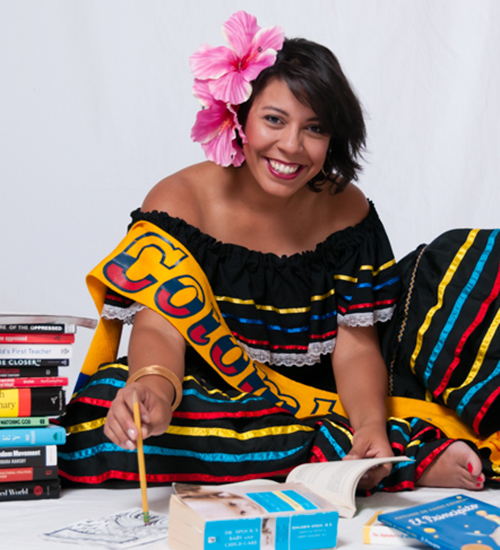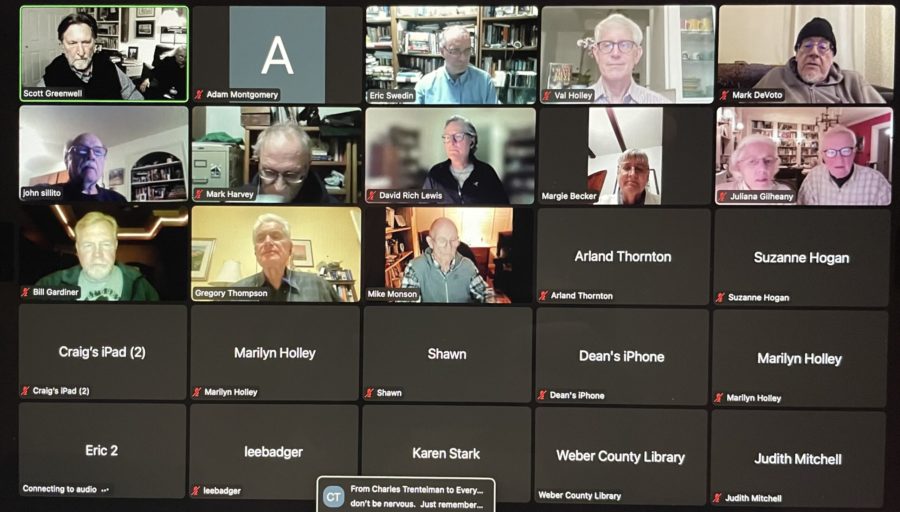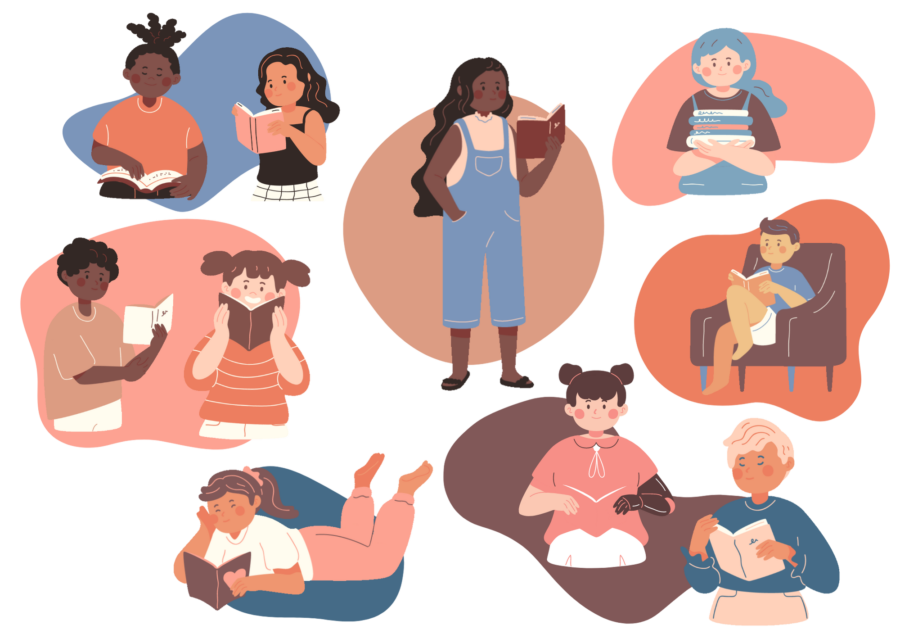On a cold afternoon outside the Weber County Library’s north branch, Melissa Zuckerman, a youth services librarian, stood in front of a dozen noisy children, a sheaf of notes in hand.
“Today, we are going to learn about some of the monsters from ‘The Odyssey’,” she said. She launched into her presentation, telling stories of the monsters of myth and legend, in the hopes of getting children excited about a book almost 3,000 years old.
This was one event of many in the Weber Reads program.
Launched in 2007, the program is the fruit of cooperative efforts from the Weber County Library system, Weber State University, the Weber County Commission and the Standard-Examiner.
Each year, the program focuses on one book or author, and encourages the community to read and discuss each text. The program also provides events, materials, reading groups and lesson plans for schools.
In the past, the program has encouraged the community to read works such as “Frankenstein,” “The Adventures of Tom Sawyer” and “Beowulf.”
This year, Weber Reads selected Homer’s epic poem “The Odyssey,” a tale of the Greek hero King Odysseus and his dangerous 10-year voyage home from the Trojan War, which includes fearsome encounters with the Cyclops, sirens and other figures from Greek mythology.
WSU reference librarian Kathy Payne is a contributor to the program this year. She gave an open lecture on the text titled “Witches, Nymphs, Lotus-Eaters, and the Long Way Home” at the WSU Stewart Library on Tuesday.
Weber Reads selects books that could appeal to different audiences, with versions available for children, teens and adults, according to Kathryn MacKay, WSU professor of history and a founder of the program. She said that makes Weber Reads stand out from other reading programs across the country.
While Homer’s other epic poem, “The Iliad,” is more historically influential, according to Payne, it goes into painstaking detail when recounting the Trojan War.
“’The Odyssey’ is much more a fable or a fairy tale,” said Payne, adding that this is what makes it more appealing to modern-day readers familiar with “Harry Potter” or “The Lord of the Rings.” “Frankly, ‘The Odyssey’ is a lot more fun to read.”
After Zuckerman’s presentation, the children ran around re-enacting Odysseus’ escape from Cyclops. After 3,000 years, librarians are still sharing this story and using it as a learning tool for children.
Over the years, MacKay said, Weber Reads has helped strengthen the connection between the university and the community.
When deciding on a book, “we do require that there are materials available in a variety of formats, and (for) a variety of readers,” Zuckerman said.
The program can involve everyone in the community.
“Human beings are natural storytellers,” MacKay said. “We tell stories a lot. It seems to be part of the nature of being human. Here we are reading wonderful stories that are part of our heritage as human beings, and we’re reading them together and talking about them. I think that’s a good thing.”
Several more events are planned this year in the Stewart Library for Weber Reads. Stacy Palin and Brad Carroll will present “The Greeks and the Stars” on Feb. 11. Jim Svendsen, a retired University of Utah professor, will present “Odysseus, the Warrior and PTSD” on Feb. 25. A discussion entitled “O Brother, Where Art Thou?” will be held March 18, and a panel discussion will be held on April 1, discussing Scott Huler’s book “No-Man’s Lands: One Man’s Odyssey Through the Odyssey.”
More information on the Weber Reads program is available at http://www.weberpl.lib.ut.us/discover/weber-reads.



















